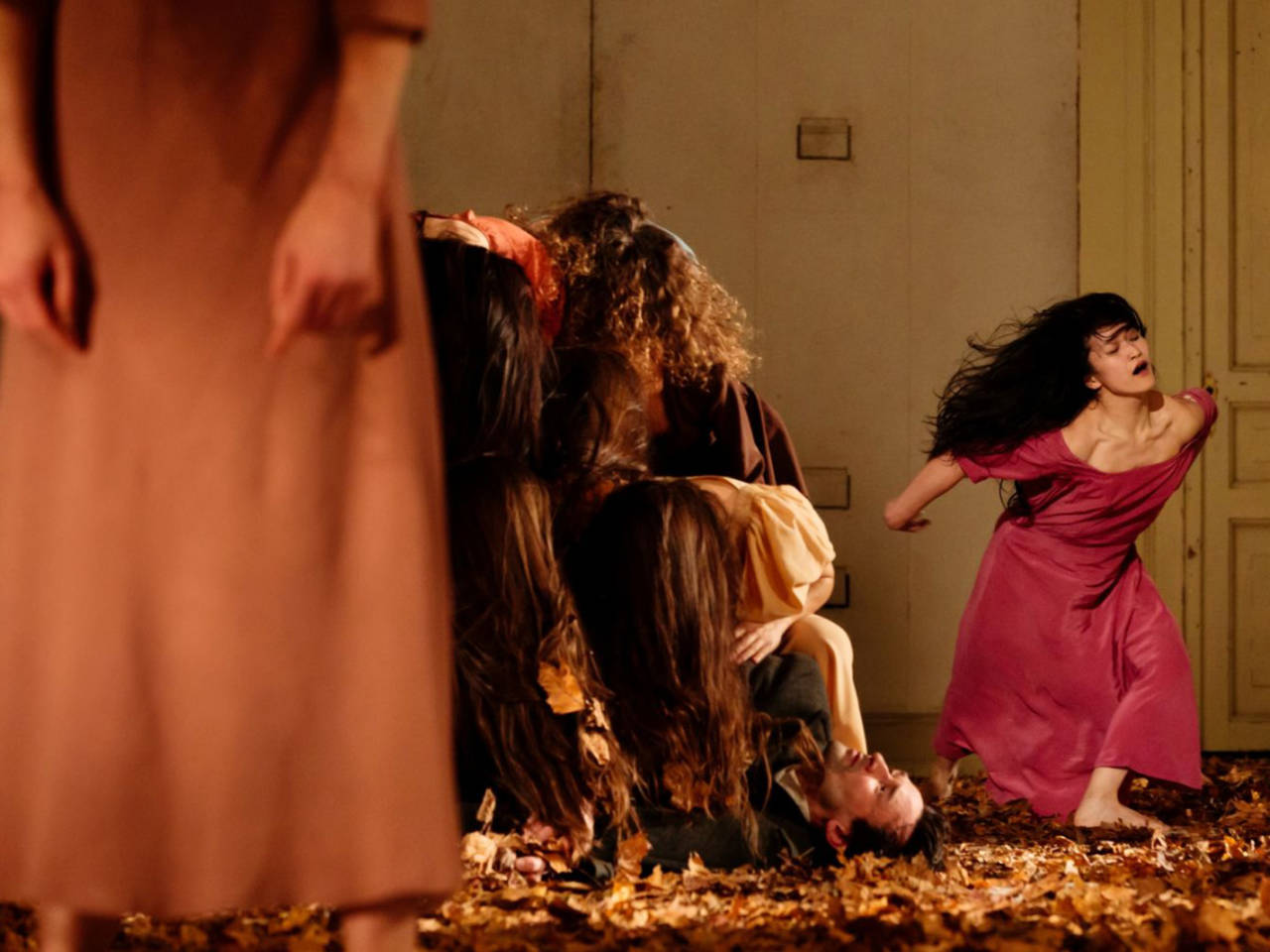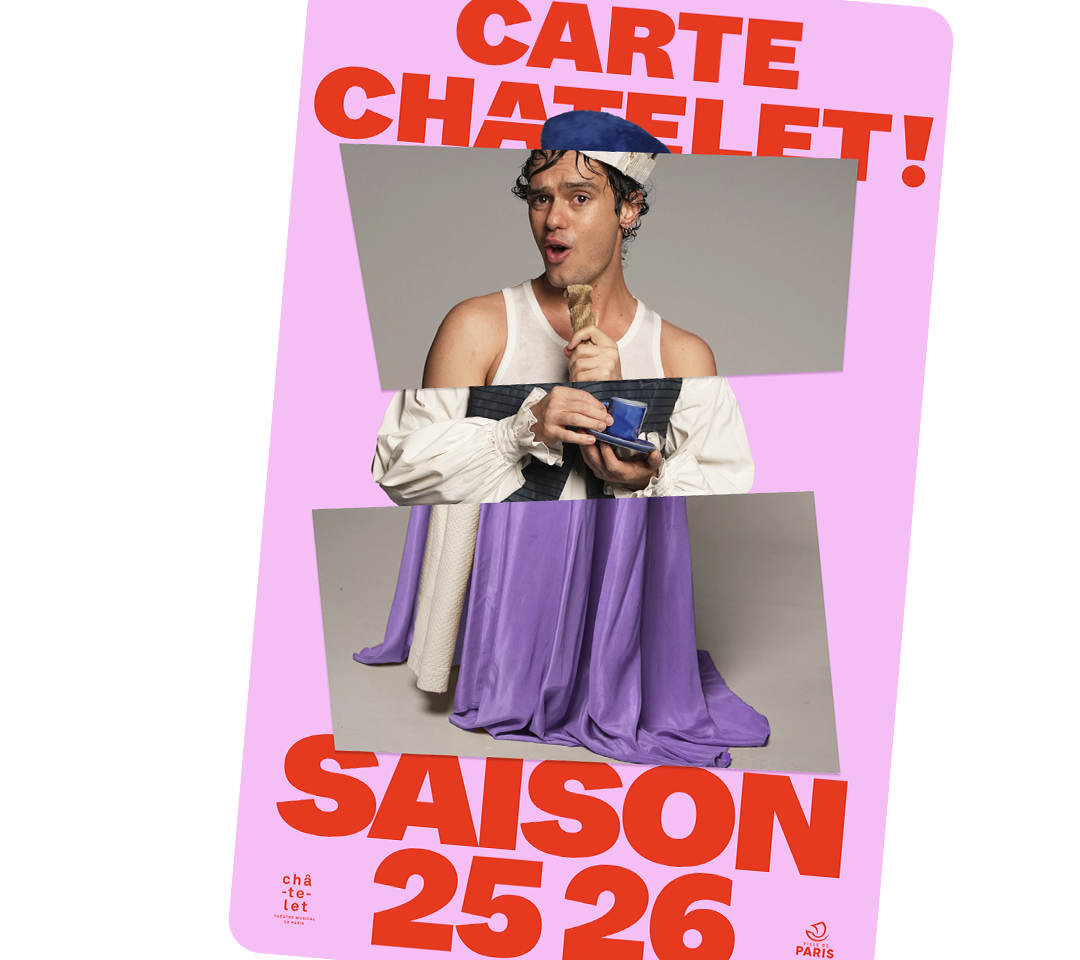Châtelet Pass
Take advantage of a 20% to 30% discount, for one or two seats, on a selection of shows in the season, as well as many other benefits such as: Purchase seats available for the entire season / Select a different price category for each show / Dedicated line +33 (0)1 40 28 28 00 or email at relations-publiques@chatelet.com / Tickets swapped for another performance of the same show (instead of €5 fee per person) / Benefits from our partners / Invitations to special events: public rehearsals, meetings, etc


